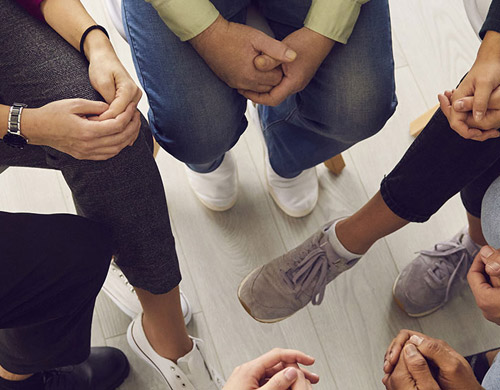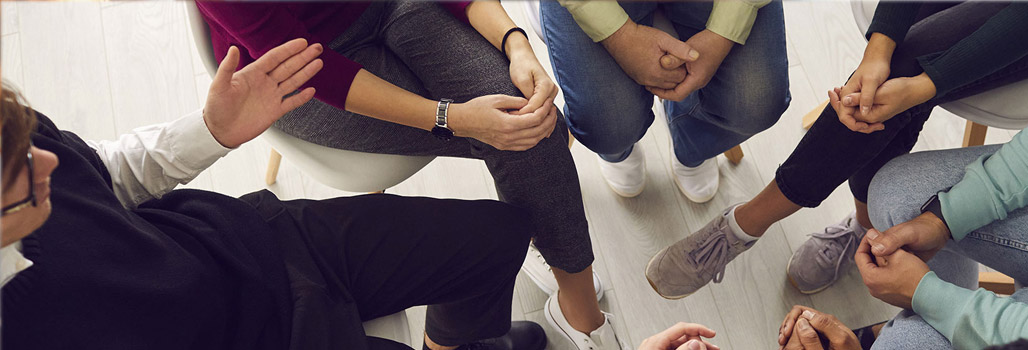It can feel so heartbreaking when you or a loved one has difficulties with drug or alcohol dependence, that you don’t know how to help. Fortunately long term addiction recovery can be achieved if you utilize proven rehabilitation methods because addiction is a treatable illness.
Learn more about how integrated rehabilitation services can help you or someone you love in starting and maintaining addiction recovery.
What is Addiction Rehab (Rehabilitation)?
Addiction ‘rehabilitation’ is a holistic treatment plan that includes both counseling and medical interventions to treat dependencies on both illegal and legal substance addictions.
There is no ‘single right’ approach to addiction rehab because it needs to be tailored to your lifestyle and may include medical detox, residential and outpatient support, and long-term relapse prevention programs.

Facts & Statistics about Addiction in Walnut Creek
Prevalence of Substance Use Disorder, by Drug Type
(IN THOUSANDS)
- 2,7578.5%Any Substance
- 2,0886.4%Alcohol
- 1,0683.3%Ilicit Drugs
- 2060.6%Pain Medication
Drug- and Alcohol-Induced Deaths by Age Group, California, 2016
- Alcohol-Induced
- Drug-Induced
- 18 to 250.5
- 9.6
- 26 to 354.3
- 13.9
- 36 to 6424.2
- 22.9
- 65+23.7
- 9.4
Drug Use, by Selected Type and Age Group California, 2015 to 2016
- 12 to 17
- 18 to 25
- 26+
- Marijuana*13.2%
- 34.0%
- 13.5%
- Misuse of Pain Medications3.5%
- 8.0%
- 4.3%
- Cocaine0.8%
- 7.2%
- 1.8%
- Heroin0%
- 0.4%
- 0.2%
What are the treatment options available in Walnut Creek?
Integrated rehab treatment is typically the most effective manner in which to overcome the root causes of drug and alcohol addictions. Although symptoms of addiction need to be tackled, life skills must also be encouraged in order to focus on the primary causes of your substance misuse.

Private Residential Programs
Stay at the property where you are receiving therapy, you are in a residential program. Access to 24-hour support and addiction treatment is obviously one of the major benefits.
If you leave your home and move into a rehab facility, you can remove yourself from exposure to stressors that may have influenced your decision to abuse drugs or alcohol.
Finishing your residential rehab program and avoiding relapse is a great deal easier if you are in a protective and supportive environment. Residential treatment programs are considered most effective if your dependency is chronic and complex in nature, or if you experience co-occurring disorders or a dual diagnosis. Sobering up is attainable if you partake in a residential rehab program, but if you expect to maintain it you will need to rise above the difficulties that come with the first few months of recovery. On completion of your inpatient treatment program, you must transition towards greater independence as you build goals for your new life.
Do You Need Help?
We work together towards sobriety.

Sober Living Programs
Sober living programs are designed with the necessary guidance to help recovering individuals achieve what they want from new life in recovery. They help you through:
- A house manager to check in on you regularly
- Working on guidelines for good behavior in recovery
- Receiving guidance and companionship from other individuals who share similar challenges
Detox Only Programs
Taking part in a detox program is an important step in rehab as it tackles your physical dependency by eliminating substances from your body. As your body returns to normal function without substances in your system, you may experience the symptoms of withdrawal.
Once you overcome the worst of physical withdrawal you will enter the second part of your rehab journey, working through the root causes of psychological dependency to break the cycle of abuse. It is normal to confront withdrawal and cravings for a while after the substance has been flushed from your system.
Relapse is less risky if you are equipped with the life skills required to navigate your life in recovery.
Outpatient Programs
Outpatient rehab programs offer more flexibility as you can attend work commitments and live at home, but you come to the rehab center for any treatments.
Outpatient programs usually provide you with:
- Education on abusing drugs
- Group therapy and individual therapy as drivers for addiction recovery – You must be enrolled in an outpatient program for a minimum of three months, and may continue treatment for longer than a year if required.
Paying for Private Treatment
If you choose to to opt for private rehab, you will need to pay with your own funds or begin a claim via your healthcare policy. The majority of health insurance providers typically cover at least some of your rehab program, including detox, therapy and counseling, medicines that are prescribed and aftercare support. Your provider along with policy terms and conditions will provide details on how much cover you can claim for.
It is a good idea to inquire about the amount you can claim prior to enrolling in a rehab program. Our Verify Your Insurance page – https://www.unitedrecoveryca.com/verify-your-insurance/ can help you find out how much cover you can claim for. If you prefer not to claim against your private health insurance, you will need to pay for your treatment directly. Some addiction treatment centers can provide payment plans to individuals who can’t pay the whole cost of treatment.
State Funded Programs
If you want to overcome your substance or alcohol addiction but due to limited resources cannot afford private treatment, you can enroll for a state-funded rehabilitation program.
These programs use government funds from state budgets, Medicaid and federal government to provide addiction recovery and may include:
- Medical alcohol/drug detox
- Addiction Rehabilitation and aftercare services.
If you do not have a private healthcare policy or you do not have access to funds, you can apply for a state-funded treatment program. You will need to provide:

- Medical information that supports your addiction issues
- Evidence of where you live
- Proof of your earnings
- Proof that shows you can stay legally in the US
Visit https://www.grants.gov/ for further information about the application process.
You can also identify direct details to contact your state agency here: https://www.samhsa.gov/sites/default/files/single-state-agencies-directory-08232019.pdf
The following state-funded addiction rehab programs are available in Walnut Creek:
Bright Heart Health
2960 Camino Diablo,Suite 105 , Walnut Creek, CA 94597
800-892-2695
https://www.brighthearthealth.com/Ujima Family Recovery Services Ujima Central
2976 Treat Boulevard,Unit B-5 , Concord, CA 94518
925-691-5083
https://ujimafamily.org/Central County Adult MH Services Contra Costa County
1420 Willow Pass Road,Suite 200 , Concord, CA 94520
925-335-3344
https://findtreatment.gov/
Maintaining Addiction Recovery in Walnut Creek
You may experience some initial challenges when first leaving treatment. At rehab you were in a professionally supported, safe environment. Your coping skills will be put to the test when you leave rehab, as you may experience some challenges that you still need to learn to deal with. In our experience, clients with intense dependencies and those who do not develop the necessary support structure find long term recovery more difficult when they leave rehab. Relapse can occur when you don’t have aftercare to support you in your new-found sobriety.
The following AA/NA meetings are available in Walnut Creek:
CA - Bi-Bett Corporation Multiple and First Offenders Drinking Driver Program
Open and Wheelchair accessibility: 560 Lennon Lane, Suite 200, Walnut Creek, CA 94598
Monday to Friday: 8 am to 5 pm
https://www.contracosta.ca.gov/Kaiser Permanente – Walnut Creek
Open Format Varies: 710 South Broadway, Walnut Creek, CA 94595
Tuesday: 12:15 PM
https://findrecovery.com/Community of Christ Church – Walnut Creek
Open Beginner and Newcomer Topic Discussion: 1786 2nd Avenue, Walnut Creek, CA 94595
Tuesday: 6:00 PM
https://findrecovery.com/
Aftercare & Alumni Programs
Aftercare programs extend your rehab program once you return to your daily life. Because relapse rates can peak as high as 60%, and because life can be stressful, relapse prevention & support is an important lifeline to support your long-term recovery plans.
As you approach the finish line of your rehab program, you will need to consider the therapies and services that will facilitate long-term recovery, and we will create an aftercare program to support you.
Those who complete their drug or alcohol treatment programs will have access to an alumni community program like ours, which gives you the opportunity to interact with peers and staff. You will be provided with access to mentorship and support from other people in recovery, as well as participate other events. This gives you the right opportunity to reciprocate and support other individuals in recovery.
Support Groups (Fellowship Meetings)
Support groups continue to be an integral function of long-term recovery because social structures motivate long-lasting sobriety. Recovery support groups such as AA (Alcoholics Anonymous) and NA (Narcotics Anonymous) offer ongoing support with the help of the 12 step principles and group sessions.
When you go to support groups, you will have the ability to share your challenges in recovery and feel empowered by other individuals who are also in recovery. Companionship, empowerment and accountability for our actions are key to long-term recovery, and meetings provide many with the necessary tools to stay sober.

Support for Families & Children Affected by Addiction
Addiction negatively impacts those living in the family unit to some extent. The person with the dependency needs support, but other members of the household also need help.
Family support groups teach you vital coping tools for your own life and allow you to offer greater support to the individual who has the dependency.
Family members will benefit from participating in support groups such as:
- Parents of Addicted Loved Ones
- SMART Recovery Family & Friends
- NAMI Family Support Groups
- Al-Anon
- Families Anonymous
- Alateen
- Nar-Anon










